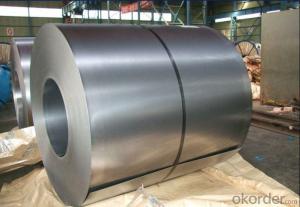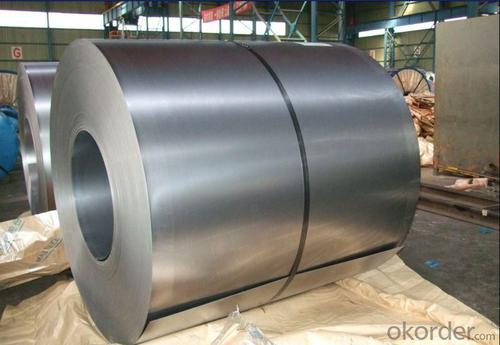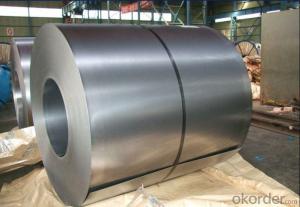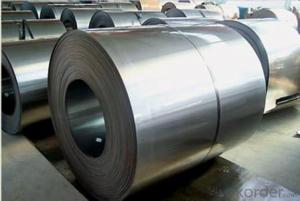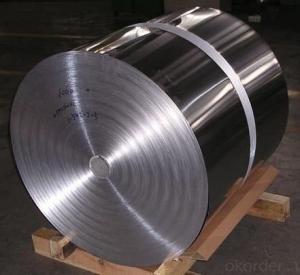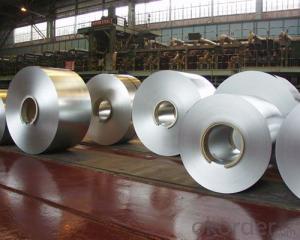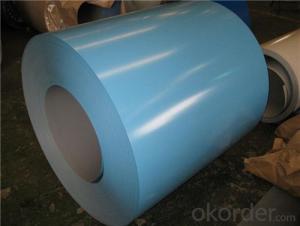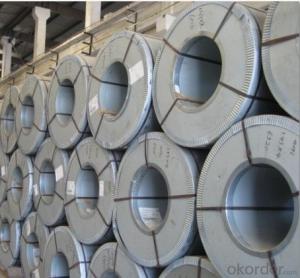NO.1 COLD ROLLED STEEL COIL
- Loading Port:
- China Main Port
- Payment Terms:
- TT OR LC
- Min Order Qty:
- -
- Supply Capability:
- -
OKorder Service Pledge
OKorder Financial Service
You Might Also Like
Cold rolled steel is the based material forgalvanized steel coil and pre-painted galvanized steel coil. It is widely usedin light industry for marking tank, furniture, refrigerators, washers, freezerplate, air conditioner, micro-wave oven, water heater, soot such machine etc.
Mainspecification:
COLD ROLLED STEEL | |
Thicknenss | 0.10mm-4.00mm |
Width | 600mm-2000mm |
Sheets length | 1200-6000mm |
Coil inner diameter | 508-610mm |
Surface treatement | matt finish/bright finish,oiling/dry, bright anneal/black anneal |
Coil weight | 3-5t |
- Q: What are the different types of steel processing equipment for coils?
- There are several types of steel processing equipment for coils, including slitting lines, cut-to-length lines, coil coating lines, and pickling lines. These machines are used to process and shape steel coils into various forms such as sheets, strips, or plates, depending on the specific requirements of the application.
- Q: What are the different types of steel coil edge finishes?
- There are several types of steel coil edge finishes, including mill edge, slit edge, round edge, and deburred edge.
- Q: hello guys. im totally new to this metalwork things. i need to do it for my project. i need to join stainless steel wires to build some kind of structure (eiffel tow. for example).i already have the wire and the torch. now the question is: where do i get silver solder? is it expensive? and what is flux for? is it necessary? what does it do? is it expensive?thank u for ur time guys! :)
- You can buy it on Ebay . The flux cleans the surface so the solder will stick . Check with a welding supply to see if this process will work on stainless.
- Q: I wanted to get a cheapo ring and I found one I like, but it's stainless steel. Is that bad? Will it get dull and tarnished fast?
- My hubby and I have some and they have stood up VERY well. He used to work with drywall, and the ring was SO easy to clean. I work with dogs and have not had a problem with my ring, either. They are heavy duty and stand up to time. LOVE them!
- Q: my friend needs sensitive ears....she wants to borrow mine but it says surgical steel,what does that mean?
- Surgical steel is a steel alloy that is free from any metals that are known allergens, such as nickel. It is widely used for surgical instruments and appliances. If you do lend your earrings, they should be sterilized before she wears them, and sterilized again when you get them back.
- Q: What are the dimensions of steel coils used in the building materials industry?
- The dimensions of steel coils used in the building materials industry can vary depending on the specific requirements of the project. However, common dimensions for steel coils in this industry range from 0.15mm to 3.5mm in thickness and 600mm to 2000mm in width. The length of the coils can also vary, typically ranging from 1000mm to 6000mm.
- Q: and what type of metal is steel?
- Iron and carbon is call mild steel, low carbon steel or high carbon steel depending on the percentage of carbon use , higher the carbon is used the tougher the steel is .but as far as I vaguely remember, in high carbon steel its only 3% of less carbon. Iron in its pure state is called wrought iron which is soft. Then there are Tool steel, High speed steel [drill bits and cutting tools are made]. Spring steel. [springs ] are made. Then we have alloy steel is another
- Q: How do we use steel ?plesase answer, its for homework xxx
- Iron and steel are used widely in the construction of roads, railways, infrastructure, and buildings. Most large modern structures, such as stadiums and skyscrapers, bridges, and airports, are supported by a steel skeleton. Even those with a concrete structure will employ steel for reinforcing. In addition to widespread use in major appliances and cars steel is used in a variety of other construction-related applications, such as bolts, nails, and screws.Other common applications include shipbuilding, pipeline transport, mining, aerospace, white goods, office furniture, steel wool, tools, and armour in the form of personal vests or vehicle armour.
- Q: I wrote in my assignment that mild steel has a high carbon content (4%).This is why it has its strong and rigid properties.. is this correct?
- High carbon steel is much harder than iron. In fact, steel -is- iron with carbon in it. Mild steel has a very low carbon content and is much softer. High carbon steel is much stronger after heat treatment. However, about 2% carbon, it is considered cast iron. Mild steel contains about 0.16% to 0.29% carbon content. It has a relatively low strength but is highly malleable.
- Q: What are the different cutting methods for steel coils?
- There are several different cutting methods for steel coils, including shearing, slitting, and laser cutting. Shearing involves using a large blade to cut through the coil, typically resulting in a straight cut. Slitting involves passing the coil through circular blades that create narrower strips or sheets. Laser cutting uses a high-powered laser beam to melt or vaporize the steel, providing precise and intricate cuts. Each method has its advantages and is chosen based on the specific requirements of the project.
Send your message to us
NO.1 COLD ROLLED STEEL COIL
- Loading Port:
- China Main Port
- Payment Terms:
- TT OR LC
- Min Order Qty:
- -
- Supply Capability:
- -
OKorder Service Pledge
OKorder Financial Service
Similar products
Hot products
Hot Searches
Related keywords
